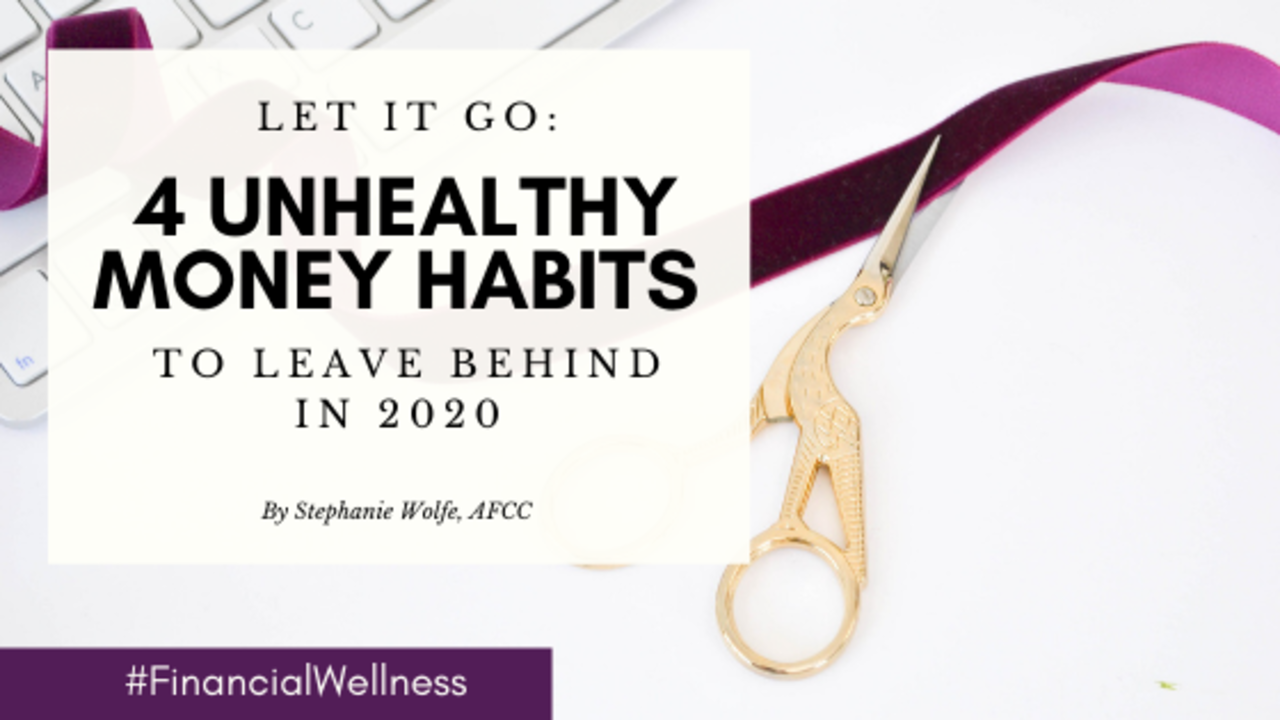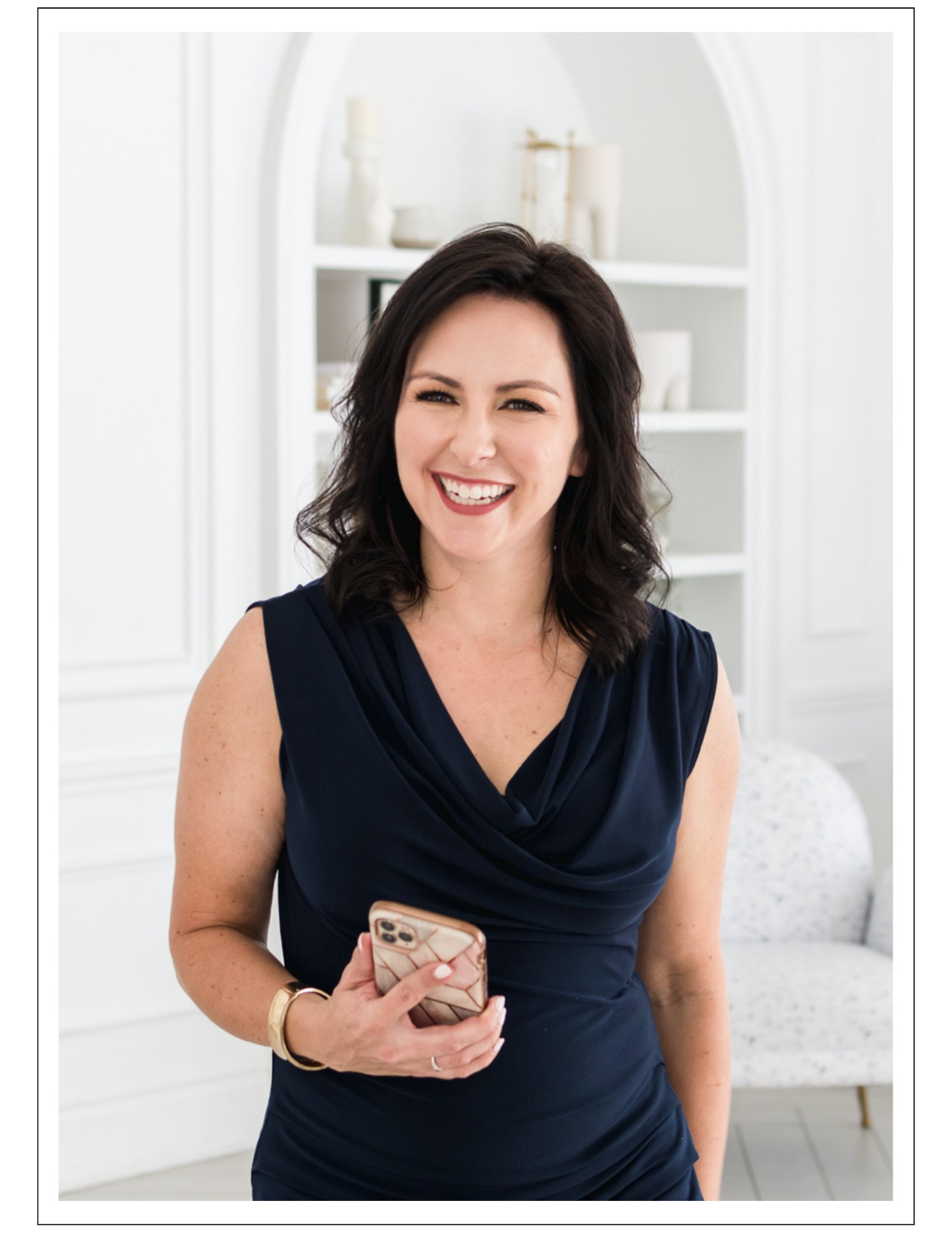Let it go: 4 Unhealthy Money Habits to Leave Behind in 2020
Jan 11, 2021
Let it go: 4 Unhealthy Money Habits to Leave Behind in 2020
The start of a new year is a perfect time to let go of those old money habits that no longer serve you.
Let’s face it, sometimes our behaviors aren’t easy to change. Our routines and our mindsets are likely to push back when we try to implement change. But you know as well as I do that healthy habits will ultimately lead to a healthier life, and personal finance is no different.
I’ve rounded up 4 of the most common unhealthy money habits I see time and again with clients and offer practical advice to help you change the habit. My advice is to pick one and do your best to implement the new habit daily. Once you’ve mastered it, tackle the next. This is your year to create a positive financial impact in 2021 and beyond.
Unhealthy money habit #1: Overspending
There’s a difference between fun money spending and overspending. Fun money spending is what makes life worth living, it’s those purchases that you’ve budgeted for and bring joy to your life. Overspending is a toxic money habit that can creep up on you. If you’ve ever wondered where all your money went or felt guilty about how much you spent each month, this is likely the problem. You may not even aware how much you’re spending until the bank account is in overdraft or the credit card is maxed out.
Instant gratification has never been easier than it is today. Companies understand how to tap into your needs and use technology to enable painless purchases. Algorithms watch your behavior online and serve up items that match your interests, tempting you all the time to part with your hard-earned money.
Are you ready to ditch the overspending? The first step is to figure out your weak spot then disrupt your behavior. Uber-eats 5 days a week? Delete the app. Instant Amazon purchases? Disable the credit card on file. This disruption to the easy-tech access will force an immediate pause on your purchase and give you time to reflect. Can you cook a meal instead? Do you need that purchase?
Remember, it’s not about how much you earn, it’s about how much you keep.
Unhealthy Habit #2: Not paying yourself first
We’ve all been told that we should “pay yourself first”, but how many of you are actually doing it…or even know what it really means? One of the best ways to practice financial self-care is to have money set aside for your future self.
I don’t care if you’re self-employed or on a salary or wage-earning job, before you turn your hard-earned money over to your expenses, transfer a portion into a high yield savings account or invest it.
The amount that you pay yourself first will vary depending on your personal financial circumstances, but you should aim for anywhere between 10-20% of your income. If that seems out of reach now, start with a smaller amount of 2-3%, then work your way up from there.
Paying yourself first is an absolute must for everyone.
Unhealthy Habit #3: Not sharing your money goals
Money is an emotional topic and many of us would prefer to keep our financial goals to ourselves. When you don’t share, however, you’re in it alone. It can be easy to lose sight of your goal. Imagine what it would feel like to have a cheerleader on your side, motivating you and helping you reach that goal?
I encourage you to take one financial goal and share it with a friend or family member you trust. Tell them why this goal is important to you and explain why you’re sharing with them. Don’t be surprised if your goal inspires them to make a financial goal as well that they share with you!
Unhealthy money habit #4: making excuses
I see you, hiding behind that long and seemingly never-ending to-do list. I get it, you’re busy. Financial matters often fall to the bottom of that list as life takes over because money is one of those “things” that no one wants to tackle. So how do you start?
The first step is to break down the money goals and make it more manageable. For example, let’s say you want to start to invest. For example, instead of writing “learn to invest” as your goal, start with “listen to a podcast on investing” (shameless plug, I suggest you start with Collective Wealth).
Once you’ve familiarized yourself on the topic, you can start to build out the next steps. Perhaps it will be to determine how much you need to invest, where to open an account, or how to buy stocks. These smaller, more manageable action items will continue to move you forward and help you avoid the excuse of not having enough time.
Changing your financial habits will improve your overall financial wellbeing. Remember, new habits take time. Start small and check in regularly with your progress. If you need accountability and support to get there, book a discovery call with me to learn more about the 90-day Investing Foundations Program.



